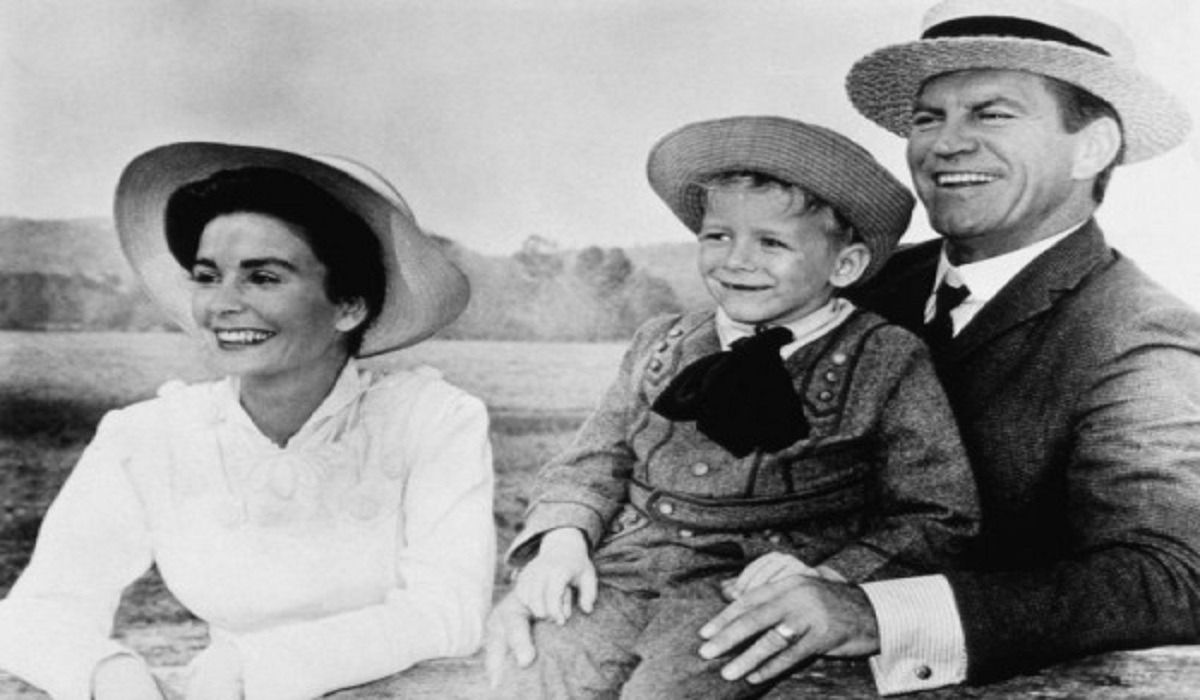GUIDE
Robert Preston: Life, Career, and Legacy in Film and Theater

Robert Preston remains a celebrated figure in American film and theater, known for his unforgettable stage presence, unique charisma, and powerful performances. His role in “The Music Man” solidified his place in Broadway history, while his career in film and television displayed his versatility as an actor. Beyond his most famous role as Harold Hill, Preston enjoyed a career filled with diverse characters, from musical performances to serious dramatic roles. This article explores the life, career, and impact of Robert Preston, from his early years to his legendary performances that continue to influence actors and audiences alike.
Who Was Robert Preston?
Robert Preston Meservey, known professionally as Robert Preston, was an American actor born on June 8, 1918, in Newton, Massachusetts. He grew up with a strong interest in performing arts, which led him to Hollywood during the golden age of cinema. Initially cast in supporting roles, he worked his way up, proving his talent across multiple genres. Preston’s breakthrough came with his role in The Music Man, which showcased his ability to captivate audiences through both music and dramatic acting.
Key Facts About Robert Preston:
- Birth Name: Robert Preston Meservey
- Date of Birth: June 8, 1918
- Place of Birth: Newton, Massachusetts
- Profession: Film and theater actor
- Breakout Role: Harold Hill in The Music Man
Robert Preston’s Early Career and Hollywood Beginnings
Preston began his Hollywood career in the late 1930s, initially appearing in smaller roles that showcased his versatility and determination. Though these roles were modest, they offered him valuable experience, allowing him to work alongside some of the industry’s top directors and actors.
Hollywood Roles Before Fame
- Western Films: Preston appeared in numerous Westerns, often playing characters with a rugged charm.
- Military Service: During World War II, he served in the United States Army Air Forces, which interrupted his acting career but allowed him to gain life experience that later contributed to his depth as an actor.
- Return to Acting: After the war, Preston resumed his career, bringing newfound maturity to his roles.
Preston’s ability to transition between film genres, including drama, romance, and action, helped him develop a diverse portfolio, eventually leading him to Broadway, where he would find his most iconic role.
The Music Man: Robert Preston’s Iconic Role
The role of Harold Hill in The Music Man is perhaps the most defining moment in Robert Preston’s career. When he took on the role in the original 1957 Broadway production, Preston became a sensation, captivating audiences with his magnetic performance and memorable singing. The role requires both acting and musical talent, as Harold Hill is a complex, fast-talking character who needs to charm an entire town.
Reasons for Preston’s Success as Harold Hill:
- Natural Charisma: Preston brought an undeniable charm to the role, making the character both likable and believable.
- Vocal Talent: Although not trained as a singer, he delivered musical numbers with conviction, creating an unforgettable performance.
- Commanding Stage Presence: His confidence on stage kept audiences engaged, making Harold Hill a timeless character.
The Music Man went on to become one of Broadway’s biggest hits, earning Preston a Tony Award for Best Actor in a Musical and cementing his legacy in theater. When the film adaptation was made in 1962, he reprised the role, gaining critical acclaim and introducing his talents to a broader audience.
Transition to Film and Television Success
After his success on Broadway, Robert Preston expanded his career to include television and film. His ability to bring depth to a wide range of characters made him a sought-after actor in Hollywood.
Notable Film Appearances:
- The Last Starfighter (1984): Preston played Centauri, a mentor figure, bringing his charm and wit to the role.
- Victor/Victoria (1982): Preston’s portrayal of “Toddy,” a witty and supportive character, showcased his comedic timing and earned him an Academy Award nomination.
- Junior Bonner (1972): In this Western drama, Preston played the elder brother of Steve McQueen’s character, displaying his versatility in dramatic roles.
In addition to these films, Preston made various television appearances, further establishing himself as a versatile actor who could adapt to any medium.
Robert Preston’s Acting Style and Unique Qualities
Preston’s acting style was marked by a strong sense of charisma, a genuine connection with his audience, and a willingness to take on challenging roles. He had a rare ability to make each character his own, breathing life into every role he played.
Qualities That Set Robert Preston Apart:
- Versatility: He could seamlessly transition from musicals to dramas, showcasing his wide range.
- Commanding Voice: Preston’s voice had a unique resonance, perfect for delivering both speeches and musical performances.
- Presence and Confidence: His self-assurance on stage and screen made his characters memorable and impactful.
Awards and Recognition for Robert Preston
Throughout his career, Preston received several awards and nominations that recognized his contributions to theater and film.
Major Awards and Honors:
- Tony Award for Best Actor in a Musical (The Music Man)
- Academy Award Nomination for Best Supporting Actor (Victor/Victoria)
- Golden Globe Nomination for his role in Victor/Victoria
These awards highlighted his impact on both Broadway and Hollywood, celebrating his talent across genres and media.
Robert Preston’s Personal Life and Interests
Beyond his life on stage and screen, Robert Preston was known for his private and modest lifestyle. Unlike many actors of his time, he avoided the Hollywood spotlight when offstage, focusing instead on his craft and personal relationships.
Important Aspects of His Personal Life:
- Marriage: Preston married actress Catherine Craig in 1940, and they remained together until his death.
- Private Nature: He was known for being reserved, preferring to keep his personal life out of the media.
Preston’s grounded personality and commitment to his craft earned him respect among peers and audiences alike, allowing him to leave a lasting legacy in the entertainment industry.
Memorable Quotes by Robert Preston
Robert Preston had a way with words, both in his performances and in interviews. Here are a few quotes that reflect his personality and approach to acting:
- “Acting is a journey, not a destination.”
- “Success on stage isn’t about fame; it’s about connecting with the audience.”
- “The role of an actor is to serve the story, not the other way around.”
These quotes capture Preston’s dedication to his art, showing his commitment to bringing characters to life with authenticity and depth.
Robert Preston’s Legacy in Theater and Film
The influence of Robert Preston’s work continues to be felt in theater and film. Actors who follow in his footsteps can learn from his approach to character development and his dedication to his craft.
Lasting Impact on Future Generations:
- Inspiration for Musical Theater Actors: His performance in The Music Man set a high standard for musical theater roles.
- Influence on Character-Driven Performances: Preston’s commitment to each role inspired actors to bring depth to their characters.
- Recognition in Film: His work in film, especially in Victor/Victoria, showcased how actors could bring theatricality to the screen.
Interesting Facts About Robert Preston
Here are some intriguing facts about Robert Preston that highlight his unique journey in the entertainment industry:
- He was initially trained as a non-singing actor, but he became known for his musical performances.
- Preston served in the Army Air Forces during World War II, which interrupted his career.
- Despite his fame, he led a very private life, rarely making headlines outside of his work.
Conclusion
Robert Preston’s career is a testament to the power of talent, charisma, and dedication. From his humble beginnings in Hollywood to his iconic role as Harold Hill, Preston left an indelible mark on American theater and film. His ability to connect with audiences, combined with his unique versatility, has made him a timeless figure in the entertainment world. For those who admire strong, character-driven performances, Robert Preston’s work serves as an enduring source of inspiration. His legacy continues to influence actors and theater enthusiasts, ensuring that his contributions to the arts will never be forgotten.
FAQs
Where was Robert Preston born?
Robert Preston was born in Newton, Massachusetts, on June 8, 1918.
What was Robert Preston’s most famous role?
His most famous role was Harold Hill in The Music Man, both on Broadway and in the film adaptation.
Did Robert Preston win any major awards?
Yes, he won a Tony Award for The Music Man and received an Academy Award nomination for Victor/Victoria.
Was Robert Preston married?
Yes, he was married to actress Catherine Craig from 1940 until his death.
What are some of Preston’s other notable films?
Some of his notable films include The Last Starfighter, Victor/Victoria, and Junior Bonner.
How did Robert Preston contribute to musical theater?
Preston’s role in The Music Man showcased how actors could successfully blend acting and musical talent, influencing future performers.
What is Robert Preston’s legacy?
Robert Preston’s legacy includes his impact on both musical theater and film, with a lasting influence on character-driven performances.

 BUSINESS8 months ago
BUSINESS8 months agoService Top: Understanding Role, Dynamics, and Consent in Relationships

 TECHNOLOGY7 months ago
TECHNOLOGY7 months agoSSIS 858: Everything You Need to Know

 GUIDE6 months ago
GUIDE6 months agoLookmovie2.to Legit: A Detailed Review of Safety and Features

 FASHION8 months ago
FASHION8 months agoDIY Tips to Customize Your Orange Prom Dress and Stand Out

 GUIDE7 months ago
GUIDE7 months agoTokybook: Your Gateway to the World of Audiobooks

 TECHNOLOGY7 months ago
TECHNOLOGY7 months agoUnderstanding Libgen: The Ultimate Free Ebook Library

 GUIDE8 months ago
GUIDE8 months agoLeague of Graphs: The Ultimate Guide to League of Legends Stats and Analysis

 GUIDE7 months ago
GUIDE7 months agoLook at All Those Chickens: The Story Behind the Viral Meme
















